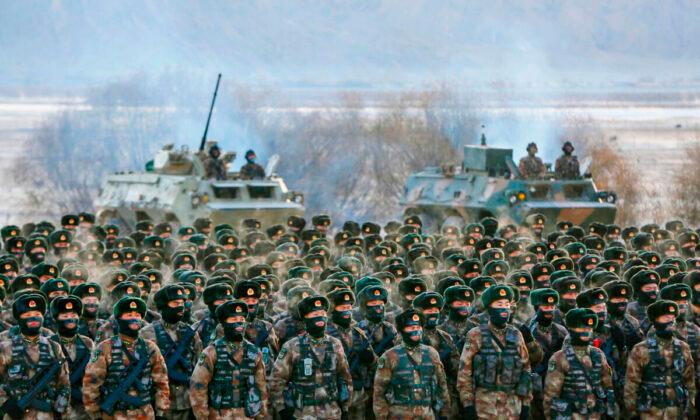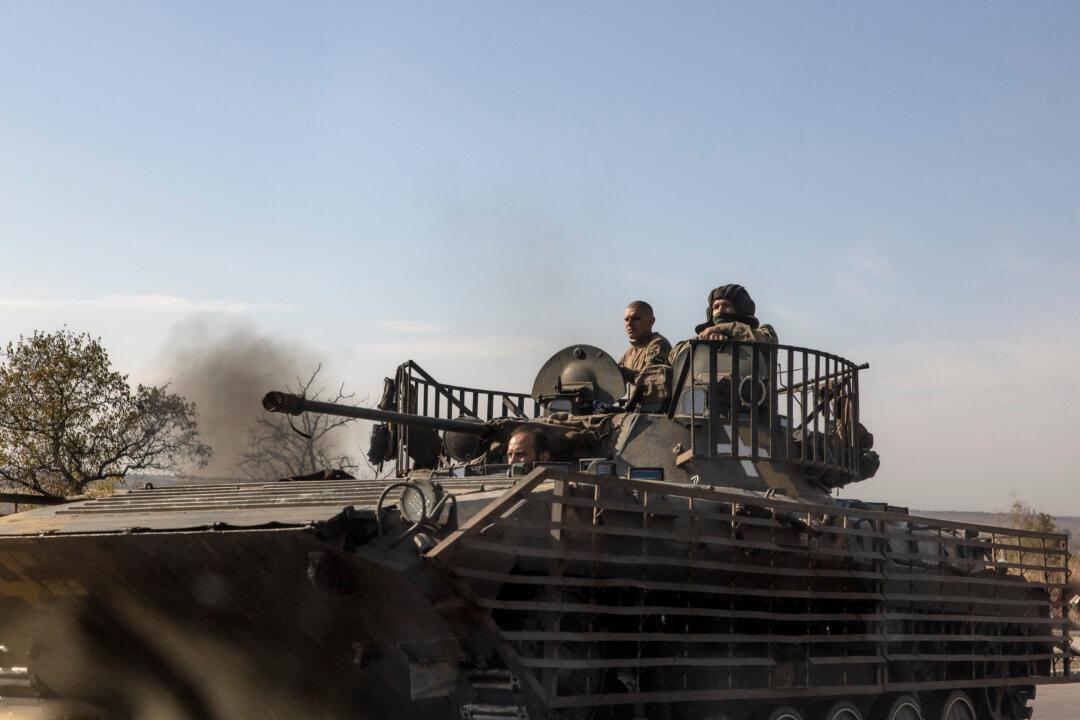China is increasing its capacity to challenge the United States across a spectrum of capabilities and is likely to do so, according to a new
report by the Government Accountability Office.
“China is increasingly assertive and the only competitor potentially capable of combining its economic, diplomatic, military, and technological power to mount a sustained challenge to a stable and open international system,” the report reads.
“Today, China has transformed what was an obsolete military into one that can challenge the U.S. military across the spectrum of conventional and unconventional capabilities.”
The report states that the Pentagon recognized China as a “pacing threat” in most areas, but that the communist regime was still vulnerable to territorial disputes and the pressures associated with a developing economy.
It identified five key areas that China’s communist leadership was investing in as part of its attempt to challenge the United States. Those areas were anti-access and area-denial capabilities such as long-range
missiles, surface and undersea operations including the expansion of its navy, cyber capabilities designed to knock U.S. systems offline, space fighting capabilities such as
anti-satellite weapons, and broad investments in artificial intelligence.
The report also noted that the regime was engaged in a protracted effort to systematically infiltrate U.S. defense and industrial bases to exfiltrate intelligence and steal critical and emerging technologies. The report summed the strategy up as “target, copy, and
transfer.”
There were several ways in which the Department of Defense (DoD) failed to adequately respond to these developments, the report found.
To name just a few, the report said that the DoD hasn’t taken necessary steps to mitigate supply chain issues for its F-35 program, its
nuclear systems are near or past their end-of-life dates, and it has only a “fragmented” knowledge of the components used by commercial companies that provide it with satellites.
The report comes amid increasing warnings from former Pentagon leaders that the DoD is overburdened with
bureaucracy and waste, and that the United States isn’t effectively
modernizing its military to match China’s newest technologies.
“Amidst this backdrop, successful preparation for strategic competition with China will depend on continuing efforts to increase U.S. combat credibility and enhance conventional deterrence that can help prevent conflict, protect U.S. interests, and assure allies,” the report states.
The recommendation, however, is not supported by everyone.
Retired Marine Maj. Gen. Arnold Punaro, for example,
said in February that conventional deterrence was failing to adequately prevent the Chinese Communist Party from behaving aggressively, and that renewed nuclear modernization would be key.
However the United States proceeds, the report said that the CCP would continue to be a threat for the foreseeable future.
“China’s growing economic, diplomatic, military, and technological power—and a willingness to exercise it—pose a significant long-term challenge to the United States,” the report states.





